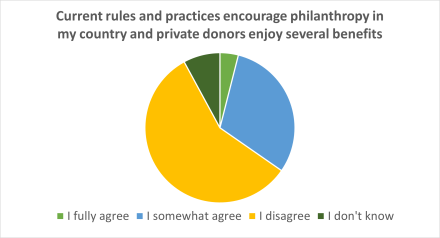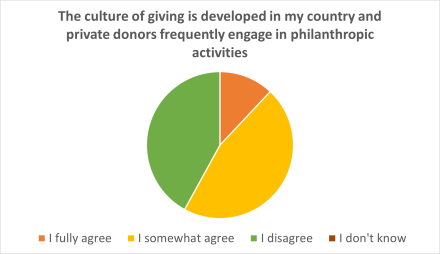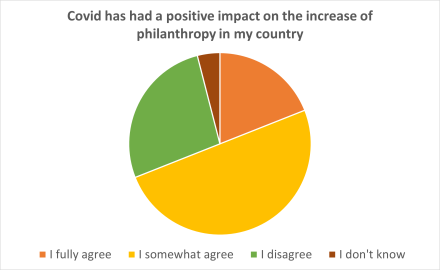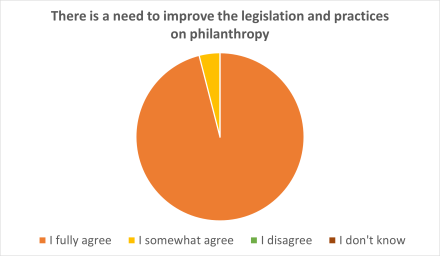Have you ever faced difficulties receiving donations from abroad? Ever wondered why you need to obtain permission to organize a street collection? Have you experienced challenges using digital technologies for fundraising? Or do you think that there are insufficient tax benefits to stimulate donors?
These were some of the questions that we discussed at our webinar convening partners from Western Balkans, Middle East and North Africa and Eastern Partnership regions to exchange ideas on fundraising regulation. At ECNL we mapped out global practices regulating philanthropy and developed a set of standards called “Fundraising Principles” to guide the discussions towards an enabling fundraising regulation.
What do our Fundraising Principles offer?
Our Fundraising Principles provide a global overview of current trends in fundraising regulation and self-regulation. They offer principles and recommendations addressing 7 key areas: fundamental freedoms; fundraising methods; data protection and right to privacy; cross-border fundraising; taxation; transparency, accountability and oversight; and registration, licensing and permission. The Principles are based on international and regional standards and country practices. They aim to support advocacy efforts and serve as a reference point to promote and facilitate further dialogue between CSOs and policy makers.
Does philanthropy really need our support and attention?
To start off, we asked our participants some questions to better understand the shape of philanthropy in the 3 regions. According to our poll results, only 4% of the participants agreed fully with the statement that the current rules and practices encourage philanthropy in their countries and private donors enjoy several benefits, while 31% of the participants somewhat agreed with this statement. An overwhelming 58% disagreed with this statement. This alone deserves our attention.
When talking about donor practices, 46% of the participants somewhat agreed that the culture of giving is sufficiently developed in their countries, as compared to the 42% that disagreed with this statement. Half of the participants think that COVID-19 has had a positive impact on the increase of philanthropy in their countries. Still, a staggering 96% of the participants fully agreed that there is a pressing need to improve legislation and practices on philanthropy.
Regulate or not?
Participants also shared their experiences with fundraising regulation in their countries. Some of the common challenges raised throughout the discussion included:
- obscure and difficult registration requirements for collection of funds,
- limitations to the receiving and sending of funds from abroad, and
- tax legislation that is hard to navigate and/or does not provide any benefits for the donors.
A few of the participants shared that they prefer not to have a regulation in place due to their concerns that decision-makers would adopt a prohibitive and hard to navigate legislation.
Regulation is certainly not an answer to all aspects of giving, especially when it introduces more obstacles than benefits. This is especially important when it comes to new digital methods of fundraising that are reportedly bringing hope for increased philanthropic giving to most of the participants at our webinar. It is therefore essential to follow the developments around digital fundraising regulation and ensure they comply with good regulatory standards and practices.
What else can we do to promote philanthropy?
Participants also shared some inspiring strategies and recommendations for the promotion of philanthropy. We heard some successful examples of self-regulation, where stakeholders from all sectors cooperated on the creation of a certification scheme to increase trust towards CSOs. Some participants talked about their capacity building activities that had a positive impact on fundraising abilities of CSOs. Others shared their experiences with advocacy activities and raised the importance and value of a comparative analysis describing regulatory approaches from different European countries. Finally, we all agreed that to support philanthropy, it is crucial to work together, work on building trust towards CSOs and learn from each other by exchanging good regulatory practices.
-----
ECNL continues to map out developments around fundraising regulation and recently released a new publication on regulation of digital fundraising. It will be followed by a series of webinars and blogs summarizing the main highlights from the discussions. Do not miss out on our efforts to promote philanthropy and follow ECNL’s updates on Twitter or LinkedIn under #standards4giving.
This webinar was organized as part of the ‘Sustainable Framework for Public Fundraising’ regional project, managed by ECNL. The project is made possible by the International Center for Not-for-Profit Law (ICNL) through the Civic Space Initiative.



